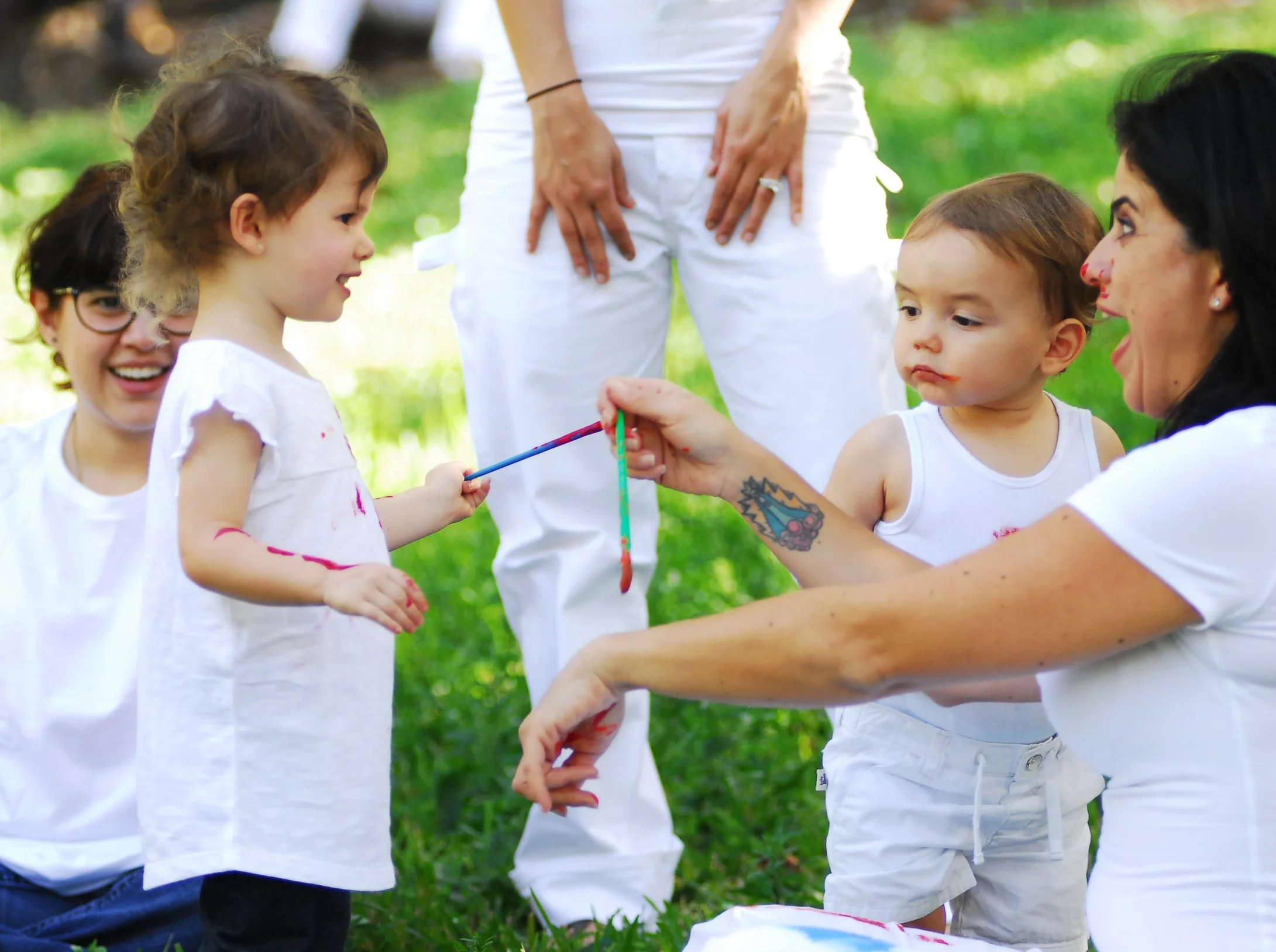Many parents have questions about how their kids can learn to socialize. The following questions come up frequently in my parenting program:
Q: Why does my child hide and show fear when adults enter her classroom?
A: At eighteen months, kids begin their first transition towards autonomy. They want to explore, but face the dilemma of how to leave their secure base, that for most in school is her teacher and at home, her parents, and explore their surroundings at the same time. This dilemma is defined as stranger anxiety and is necessary so that the child can explore and at the same time maintain sufficient tension so that they can remain close enough to those that care for them. In these situations, the child tells himself: “I can do this on my own, but I still need you.”
Q: What can we do with my daughter when she feels this fear and she hides or doesn't engage?
A: First, we should describe what she is feeling. The majority of parents will tell their kids that “they’re fine” and “there’s nothing to be afraid of.” However, this does not help alleviate the anxiety that they are feeling in that moment. The best way to respond is as follows:
Describe what they are feeling: “Sweetheart, you are very scared.”
Touch them or hug them a moment.
Soothe them by giving them information: “My love, this person is a friend of Mommy’s. Wait here with me and you’ll see that she is a friend.”
Q: My child is too friendly -Why does my child not feel or demonstrate the same anxiety or fear when they meet a person for the first time?
A: In this case it is probably that the security that he feels when he is with his parents has helped him feel secure with all adults.
He is demonstrating that he is transferring the security that he feels with Mom and Dad towards others. He believes that all adults are going to take care of him like Mom and Dad do.
Q: How can we help our kids be more cautious without scaring them?
A:
We should explain to them that when they are out of the home they have to ask Mom and Dad permission to greet an adult.
You can show pictures of the adults that you know, often, so that they can understand the difference between friends and strangers.
When you go out to a store or public places we should keep them close or hold them by the hand so that we can control whom they greet.
If a stranger approaches and your child says hi, draw near to your child and say, “My love, you felt curious to know this person but remember that first you have to ask Mom or Dad permission before you greet a stranger.”
Q: When should we worry? When are these behaviors bad or dangerous?
A:
When our kids show fear we have to observe:
If the person they are afraid of is someone who should be avoided.
If it is someone that the child has avoided previously, it is important to look carefully at who it is and if something has transpired between them.
If the child regresses in some behavior that they previously had dominated, for example, they stop eating or have difficulty sleeping.
They are frequently irritable or in a bad mood.
When our kids are too friendly:
Often, when a child has suffered from some type of abuse, they are friendlier or they do not calculate well the distance that they should maintain with strangers. Children who have been mistreated or abused tend to seek and ask for the affection of “the entire world.” It is a form of obtaining what they are not receiving at home. If your son/daughter is acting in this way and has domestic problems or a difficult situation at home you should seek psychological help for the family.

